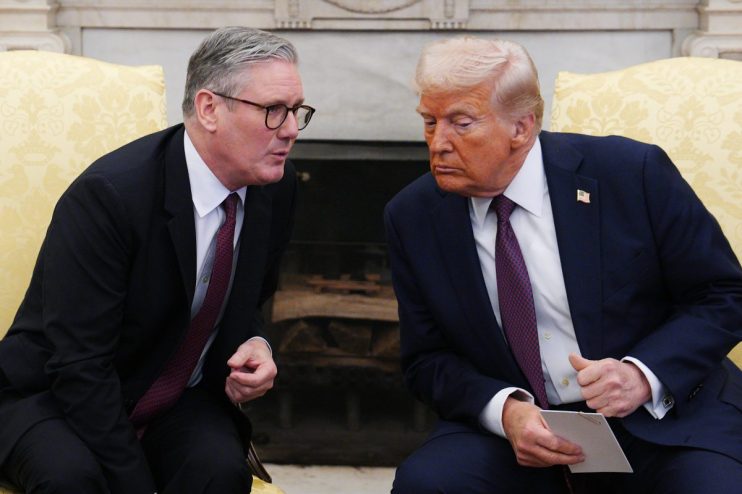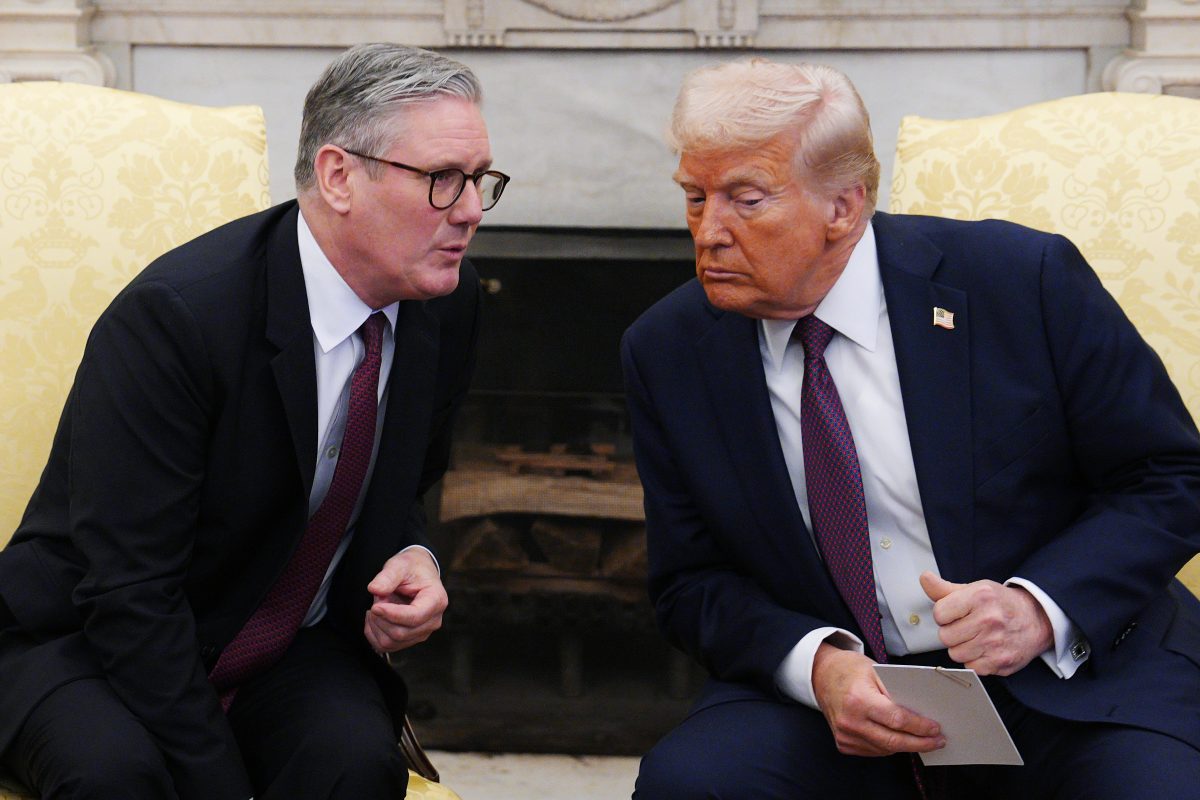Monday 28 July 2025 12:52 pm
Share
 The EU deal follows Trump and Starmer inking an agreement in May.
The EU deal follows Trump and Starmer inking an agreement in May.
Brexit Britain is set to have curbed another President Donald Trump trade offensive after the US and EU inked a deal which economists dubbed a White House win and European retreat.
The deal, announced late Sunday night, will see the original US-imposed tariffs of 30 per cent on the EU slashed to 15 per cent.
Ursula von der Leyen, the European Commission’s President, hailed the “good deal” as bringing “stability” and “predictability” but economists have said they’re “not so sure”.
Jack Allen-Reynolds, deputy chief Euro-zone economist at Capital Economics, said the deal would shave 0.5 per cent off EU GDP, which was “worse than previously assumed”.
Allen-Reynolds said “the deal was worse than what had been trailed in the press” after reports circled that aircraft and medical equipment would be exempt from tariffs completely.
Steel and aluminium have been the only named exemption from the 15 per cent baseline – in which 50 per cent tariffs will already apply.
The agreement will also see the EU commit to further investment in the US by nearly $600bn as well as $750bn piled into US energy.
Uncertainty surrounds deals
Whilst markets responded positively as Europe opened in the green on Monday, uncertainty continues to cloud future prospects.
“Admittedly, for now the deal has avoided a much bigger and more damaging increase in US tariffs, as well as EU retaliation,” Allen-Reynolds said.
But the lingering uncertainty persists after a senior White House official told reporters in Washington that Trump retained the right to hike the levies in the future if European countries failed to live up to investment commitments.
Allen-Reynolds said the deal “has avoided a much worse outcome for now” but “it remains to be seen whether it will last”.
He added: “Uncertainty is likely to remain high for the foreseeable future”.
Economists have pointed to the differences between the UK and US trade deal where, despite some opaque details, a clearer direction was provided.
Analysts at RBC said: “The rub is that there seems to be controversy around what concretely was agreed to and, in contrast to the US/UK deal, no official text has been released as of yet.”
Read more
Trump secures ‘big win’ in EU trade deal after Brussels retreats
Prime Minister Sir Keir Starmer finalised the UK’s deal with Trump in early May becoming the first nation to seal an agreement with the US after the White House’s sweeping tariffs on trading partners the month prior.
The UK was granted modest relief for automakers with tariffs on cars slashed to ten per cent for a quota of 100,000 vehicles. Meanwhile, steel tariffs were set at 25 per cent, managing to skirt the 50 per cent later slapped on nations.
Von der Leyen has shared hopes the 50 per cent steel rate maintained on the EU could be replaced with a quota system upon further negotiation.
Starmer is expected to push for a zero per cent rate on steel and aluminum as a part of the President’s state visit this week.
Starmer and von der Leyen announced a UK/EU tie-up in May which the Prime Minister said would put Britain “back on the world stage”.
The agreement received staunch opposition for allowing EU trawlers access to British waters for a further 12 years, preventing UK fishermen from being able to re-negotiate their share of “allowable catches” on an annual basis, as they had hoped.
Another win for defence
As part of the EU’s investment into the US, the 27-state bloc is expected to pile an unspecified amount of cash into defence equipment.
This comes as countries across the globe ramp up their military spending at the behest of the White House.
Allen-Reynolds said it was “unsurprising that EU countries would buy more US defence equipment” given spending plans.
Defence stocks have enjoyed a bumper start to the year as Trump pressured countries to up spending.
NATO leaders have pledged to hike defence spending to five per cent of their economic output by 2035 after mounting US pressure, creating a surging demand.
London-listed Babcock hailed a “new era for defence” after recording an 11 per cent jump in revenue to £4.8bn in June.
But as European nations look to bulk up their military, the deal could position the US as a net winner from bullish spending.
Read more
Euro weakens as markets rally following EU-US trade deal
Similarly tagged content:
Sections
Categories
People & Organisations
